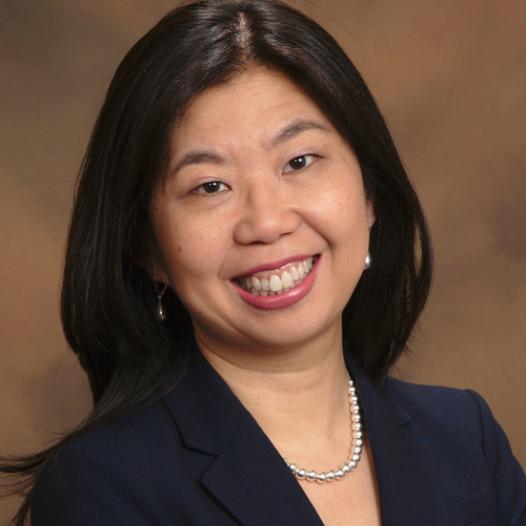Monday, Jul 14, 2025
Why choosing the right business degree matters
So, you’ve decided to major in business, but now you’re faced with a critical question: Which degree do I choose — a B.S.B.A. or a B.B.A.? While they do share some similarities, B.S.B.A. and B.B.A. degrees also have distinct differences that can impact your education, acquired skills and professional opportunities.
If you’re unsure of the differences between these two undergraduate degrees, you’re not alone. Many students like you navigate this process, and Rider University is here to help. We've created this comprehensive overview so you can better understand the nuances between these differing business programs and choose the best academic path for you.
Understanding your business degree options
What is a B.B.A. degree?
A Bachelor of Business Administration (B.B.A.) is a broad-based undergraduate degree that provides a diverse education across core business sectors, such as marketing, accounting, finance and human resources. It emphasizes robust management and organizational leadership skills without delving too deeply into technical specializations.
What is a B.S.B.A. degree?
A Bachelor of Science in Business Administration (B.S.B.A.) degree provides a holistic business education that prioritizes quantitative and analytical skills. It typically includes more intensive coursework in mathematics, economics, data analytics and business technology. Because of its focused approach on technical competencies and critical analysis, many consider a B.S.B.A. a more specialized degree, preparing students for data-driven and analytical roles within the business world.

Over 40% of our students graduate with a double major or a major with a minor — without taking additional credits.”
What’s the difference between a B.B.A. and B.S.B.A. degree?
Business curricula
Whether you enroll in a B.B.A. or B.S.B.A. degree program, it will have a core curriculum that offers foundational knowledge in accounting, economics, finance, management, marketing and other fields.
Most bachelor's programs require 120 credit hours to graduate. While specific curricula vary by institution and accreditation, B.B.A. programs generally provide more flexibility with free or elective credits. Alternatively, a B.S.B.A. program typically relies on a more structured and prescribed curriculum and progression although Rider’s B.S.B.A. degree has a free elective component built into our curriculum.
Additionally, these more concrete curricula place a greater emphasis on building technical skills and expertise. As Dr. Lan Ma Nygren, an associate dean and professor at Rider University’s Norm Brodsky College of Business, explains, “A bachelor's in business administration usually has fewer requirements for data analytics skills and technology competence, and instead emphasizes a strong foundation in the liberal arts.”
For instance, Rider’s B.S.B.A. curriculum incorporates a block of business analytics and technology coursework, which highlights vital disciplines like:
- Business analytics and data visualization
- Operations management
- Information systems and technology
- Applied statistics and quantitative methods
Yet, many B.S.B.A. program curricula offer some amount of free or elective credits so that you can tailor your education to your interests. In fact, at Rider, you have at least 12 to 15 credits of free electives.
Skill acquisition
Many institutions offering B.S.B.A. and B.B.A. programs take a hands-on learning approach to ensure you know how to apply concepts in real-world situations. Nevertheless, each degree equips you with a different set of skills to take into your career.
For example, a B.S.B.A. program like Rider’s helps you improve your technical competencies in:
- Analyzing data and communicating your findings
- Working with Excel and other data visualization tools
- Crafting data-driven stories that assist in strategic business decision-making
- Leveraging Artificial Intelligence (AI) as a tool
- Information systems management
According to Dr. Nygren, “Those business technology and analytics skills are what really differentiate the B.S.B.A. from a B.B.A.” However, both B.S.B.A. and B.B.A. programs develop what Dr. Nygren calls “power skills,” which may commonly be referred to as “soft skills.” These include, but are not limited to, effective leadership, clear communication, creative problem-solving and resiliency.
She explains that employers need people to handle more technical tasks, so data analysis skills and technical fluency, especially when it comes to AI, are the reasons companies hire you as a recent college graduate. But, as you progress in your career, your power skills become essential to tackling higher-level leadership roles.
Which one offers better career preparation?
The question isn’t which degree prepares you better for the business world, but rather what type of preparation you receive. Both business degrees support your growth as a communicator, equip you with management techniques and cultivate ingenuity.
Pursuing a B.S.B.A. degree positions you to apply these competencies in more technical fields, like business analytics, market research, supply chain management and information technology. With a B.B.A., you graduate well-equipped to take on general management roles, work in sales and marketing, or chart a new path as an entrepreneur.
Your professional readiness also depends on additional career resources provided by your institution and how you use them. We recommend that you take full advantage of the career development services offered by your school to receive personalized support and expand your network. At Rider, our Career Development and Success Office provides career coaching, mock interviews, résumé help, hosts workshops and career fairs, and gives you practical tools to find your dream job.
How to decide which degree is right for you
To choose the business degree path that best suits your goals, consider:
- Your academic strengths and interests
- Do I thrive working with numbers and turning data analysis into solution-oriented strategies? Or do I prefer broader concepts, communication and people-focused approaches?
- What’s my comfort level with mathematics, statistics and other quantitative coursework (like advanced statistics or detailed financial modeling)?
- Am I eager to build my technological competencies?
- Short-term and long-term career goals
- What kind of business industries spark my interest?
- Would I enjoy working in highly analytical roles, such as a financial analyst or a supply chain manager?
- Or am I drawn to more creative or human-oriented positions, like a digital marketer, HR specialist or sales role?
- Business degree specifics
- What are the core course requirements for this bachelor’s degree in business? Do these courses cultivate the skills that I want?
- Does it allow for customization through electives or specialized tracks, and do they align with my interests?
- What types of experiential learning opportunities are available? What industries does this university have connections to? And how do they relate to my goals?
When asked which degree best positions aspiring business leaders, Dr. Nygren says, "I think the B.S.B.A. degree gives you more flexibility." She notes that for recent high school graduates, who are young and still exploring their specialization, a B.S.B.A. extends more opportunities for skill development and career potential.
For over a decade, Dr. Nygren has played an integral role in building and refining Rider’s pedagogical approach to deliver a high-value education. “I'm very passionate about the skills a student needs,” she states. “I keep a very close eye on how the job market is evolving and how we can keep up with our curriculum to make sure our students are best prepared for the current job market.”
But the decision to pursue either business degree is entirely yours. Asking yourself these questions can help clarify what you want to gain from your business education and determine which type of degree fits your needs. Ultimately, the best academic path is the one that enhances your skills, fuels your passions and gets you closer to your goals.
Advice from a business professor
With two master’s degrees, a Ph.D. and over 20 years of experience in both academia and the business world, Dr. Nygren has witnessed the evolving relationship between industry and education. Her advice to today’s business students? Be adaptable.
As Dr. Nygren notes, times have changed. “It's not like you're going to get hired and stay for 30 years and retire there,” she says. “This generation, because of technology and AI, will for sure change jobs.”
Over her years as a professor and associate dean at Rider University, Dr. Nygren has seen plenty of business alumni build successful careers and then use their well-rounded education to pivot to a different path. She recounts a story of one alumnus who graduated with a B.S.B.A. in Finance but now works as a human resource professional at a top-tier investment management firm.
This is the type of flexibility that fuels a career filled with longevity.
You’ve got to have well-rounded skills, an open mind and adaptability. [That way] when career doors open, you have those skills ready to take on those opportunities.”
Discover your purpose — earn your B.S.B.A. at Rider
Since 1865, Rider University's Norm Brodsky College of Business has delivered cutting-edge, hands-on education that inspires the next generation of business leaders.
Backed by our dual AACSB accreditation in business and accounting, our business programs transform your passion into in-demand skills that fuel your success. Explore 13 distinct B.S.B.A. degree programs — from accounting to sports management and more — and immerse yourself in real-world learning opportunities.
Whatever your business passions, at Rider, you'll receive an essential blend of in-depth theory and practical application, giving you the expertise to excel in any endeavor.
Ready to embrace the possibilities? Take the next step by applying to Rider University today.
